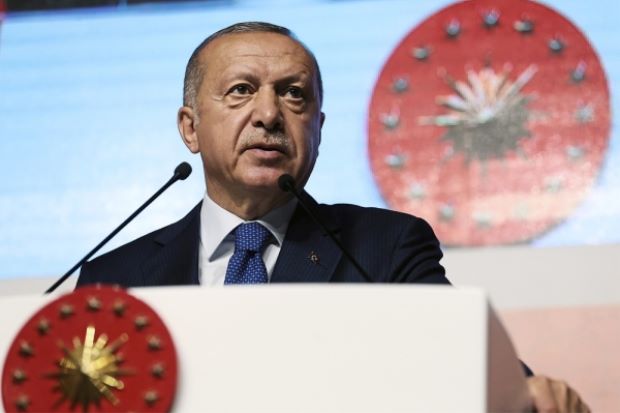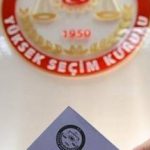Pressure from the top: The credibility of Turkey’s central bank is already in question after repeated pressure from President Recep Tayyip Erdogan, who’s embarked on increasingly interventionist economic policies and lashed out at banks for giving negative guidance. – AP
Turkey’s central bank won’t explain what’s behind the recent moves in its foreign currency reserves – and that’s making investors nervous.
The lira weakened more than any other currency on Thursday amid speculation that the central bank was using money borrowed from commercial banks in short-term swaps to inflate its foreign reserve figures. It sank nearly 2% on growing concerns before paring some of those losses.
Here’s a quick look at what’s going on:
How much does Turkey hold in foreign currency reserves?
The central bank reports the lower, or net, figure because of a stand-by financing deal Turkey signed with the IMF nearly two decades ago, according to Ibrahim Turhan, a former deputy central bank governor.
He agrees that it makes more sense to focus on the gross figure, which includes the amount commercial lenders park at the central bank as a requirement against their dollar liabilities. As long as Turkish residents keep their foreign currency savings at banks, then a part of that will continue to be held at the central bank, which can use those funds in any way it sees fit, Turhan said.
Why do investors care so much about Turkey’s reserves?
Turkey has about US$118bil of foreign-currency debt maturing within the next 12 months. It’ll need the central bank’s buffers to meet those obligations if the flow of capital that finances the economy slows.
Foreign investors have already withdrawn a net US$1.6bil from the lira-denominated bond market this year amid political and economic turbulence. A sudden drop in reserves in March prompted the lira’s biggest single-day decline since last year’s currency crash. JPMorgan Chase & Co recommends investors sell the lira, citing the drawdown.
Why do investors fear the reserve numbers might be inflated?
Turkey’s central bank began last month borrowing excess foreign currency from commercial lenders through FX swap auctions, lending the banks liras in return.
Since the swaps were introduced, there’s been a steady build-up in its reserves, prompting speculation that the borrowed money was being used by the central bank to give the impression that its foreign currency stockpiles were growing when much of the money is destined for other uses.
How much money are we talking about?
In the first three weeks after the FX swaps were introduced through April 12, net reserves rose by just over 20 billion liras, or around US$3.5bil at today’s fixing. The amount the central bank borrowed during the period was just under US$13bil, leaving around US$9bil unaccounted for assuming the borrowed amount is reflected in reserves one for one. If that’s the case, for the net reserves to remain steady, the central bank would need to roll over the swaps every week when they expire.
So, where is the money?
We don’t know. That’s the short answer. The longer answer is that the amount the central bank may have used to repay maturing foreign debt or what it may have sold to Turkey’s state energy company, which pays for gas imports, doesn’t add up to such large amounts.
That has led to speculation that the central bank is using its FX arsenal to support the lira.
The central bank is obliged to announce currency market interventions, however, and it hasn’t done so. According to central bank data, the last such intervention was done on Jan 23, 2014. That’s left investors wondering whether the central bank is intervening indirectly. Traders say state lenders have been on the selling side of the dollar trade in recent weeks.
What do the investors say?
Most economists say the Turkish central bank owes investors a thorough explanation of what appears to be a discrepancy in the foreign-currency reserve data. Its credibility is already in question after repeated pressure from President Recep Tayyip Erdogan, who’s embarked on increasingly interventionist economic policies and lashed out at banks for giving negative guidance.
For Win Thin, global head of currency strategy at Brown Brothers Harriman & Co, the reserves saga is not just a matter of transparency over a single data point. “The real takeaway is that the institutional framework appears to be breaking down further in Turkey,” he said. — Bloomberg
Source: Bloomberg



